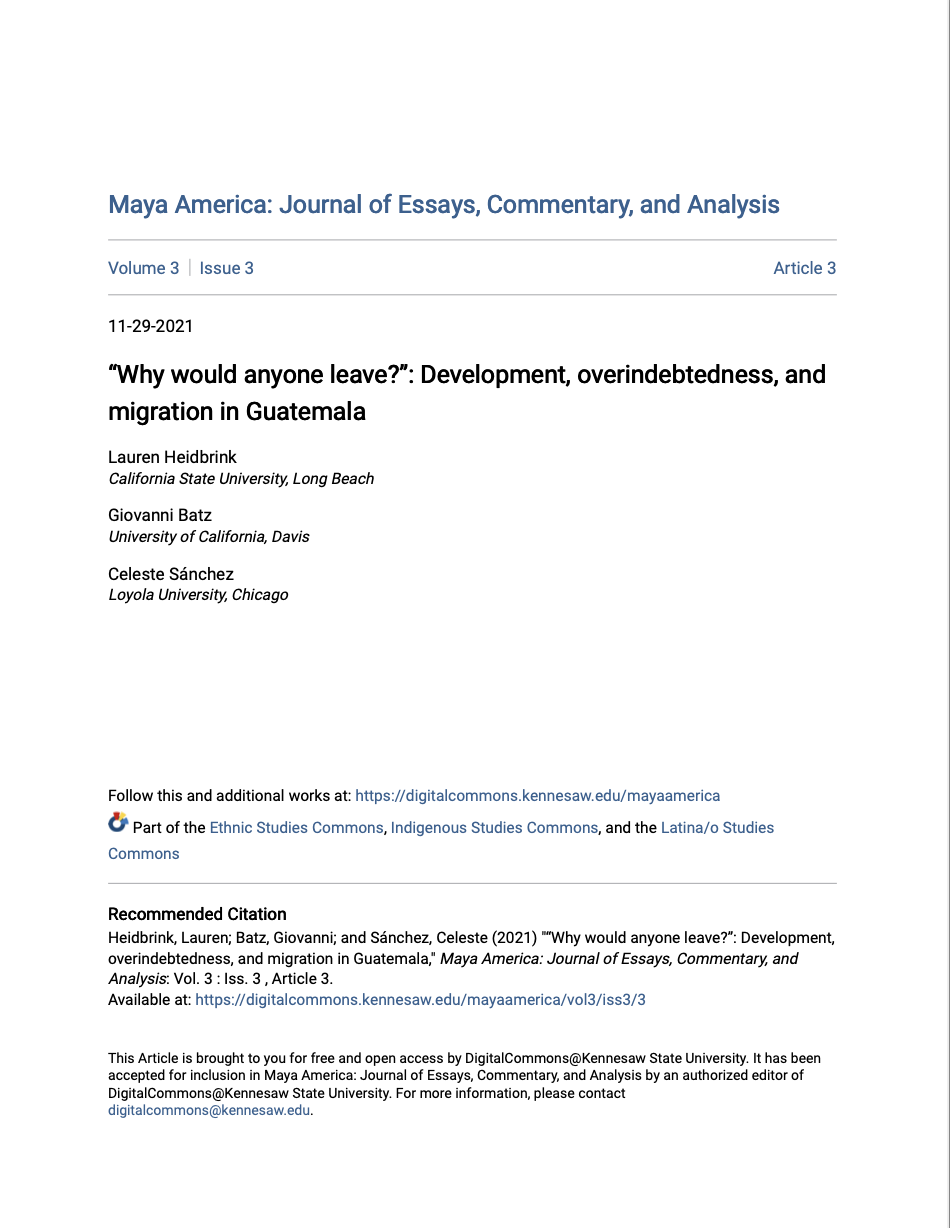Resource information
Over the past two decades, policymakers have expressed considerable optimism about the capacity of international development to curb transnational migration, yet there is a dearth of research examining how and under what conditions development interventions impact migration decisions. Enlisting a case study approach in the Maya-K’iche’ community of Almolonga, this article examines divergent meanings and practices of “development” and its impact on the migratory aspirations and outcomes of Indigenous families in Guatemala. Government authorities and international development experts exalt Almolonga as a prosperous example of a globalized, agrarian-based economy. Key to its ‘success’ is the growing microcredit industry which advertises loans as a means to invest in small businesses and to enable household purchasing power. Yet, as our survey finds, this credit often cascades into over indebtedness, leading to significant out- migration. In contrast, local understandings of development are rooted in the K’iche’ concept of utz k'aslemal, a system of complementary economies and intergenerational knowledge-sharing through education and entrepreneurship in an effort to create pathways to ‘el buen vivir.’ By tracing the conflicting meanings assigned to development, we argue that over indebtedness resulting from microcredit not only reinforces but likewise exacerbates existing social inequalities in Guatemala and, contrary to development claims, induces migration.

